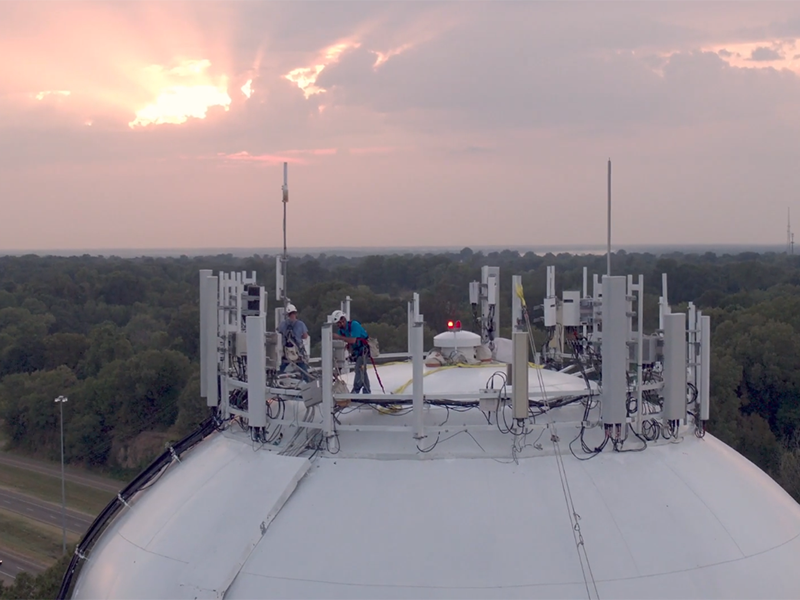
We deal with a lot of weather challenges in the mid-South. Winter may bring snow, sleet and ice, while summer can bring hurricanes—and buffering those major seasons are spring and autumn, where you can experience severe-weather outbreaks with tornadoes and hail.
All four seasons can wreak havoc on the infrastructure we all use for travel and communications. When the potential for inclement weather is year-round, it’s always time to make sure you’re prepared to handle a potential disaster.
C Spire Team Members work year-round to harden our extensive wireless networks and prepare for a wide range of potential disasters and major weather events. We routinely review and update our emergency preparedness and crisis communications plans, and conduct drills throughout the year to test the readiness of our network and team members.
C Spire is prepared and ready for emergency situations. Here are some steps you can take to be prepared, too.
Before an emergency event:
- Carry a spare cellphone charger and external charging device. Keep devices and chargers in a waterproof bag. Charge your batteries when a disaster or storm is approaching.
- Confirm that you have not opted out of receiving important Wireless Emergency Alerts (WEAs) on your device (instructions for iOS and Android here).
- Download emergency apps including FEMA and MDOT (iOS, Android), and bookmark the National Weather Service’s mobile-friendly site to help keep you updated as the situation unfolds.
- If you don’t have a flashlight app built into your mobile phone, download one.
- Save phone numbers and email addresses for police, fire, hospital, school, vet and other emergency resources in your phone. If you are a parent, find out how your children’s school or school district will notify you during a weather or other emergency.
- Know how to forward your home phone number to your mobile device.
- Take photos and/or videos of your property periodically to have available for insurance purposes. Back up your files to a secure storage space to ensure images and videos are saved separately from your device.
During an emergency or disaster:
- Use voice calls only for important communication and keep them short. Instead, use text messaging, email or social media to let your loved ones know your status. Keep messages short and simple.
- Conserve your cellphone’s battery life:
- Whenever possible, turn on your phone’s power-saving mode.
- Reduce your screen’s brightness, and adjust your settings to ensure your phone’s screen goes into sleep mode faster.
- Close unused apps and turn off push notifications so nothing is running in the background.
- Turn off Bluetooth, WiFi, and location-based services when you don’t need them.
- Set your email to arrive manually rather than having it automatically sent to your device.
- Check your local wireless store to see if they are open and providing charging station services during emergencies.
- For 9-1-1 emergencies, call if you can or text if you can’t. Stay on the line until the operator tells you it’s safe to end the call. When possible, have detailed location information ready.
For more information, visit ready.gov.

















